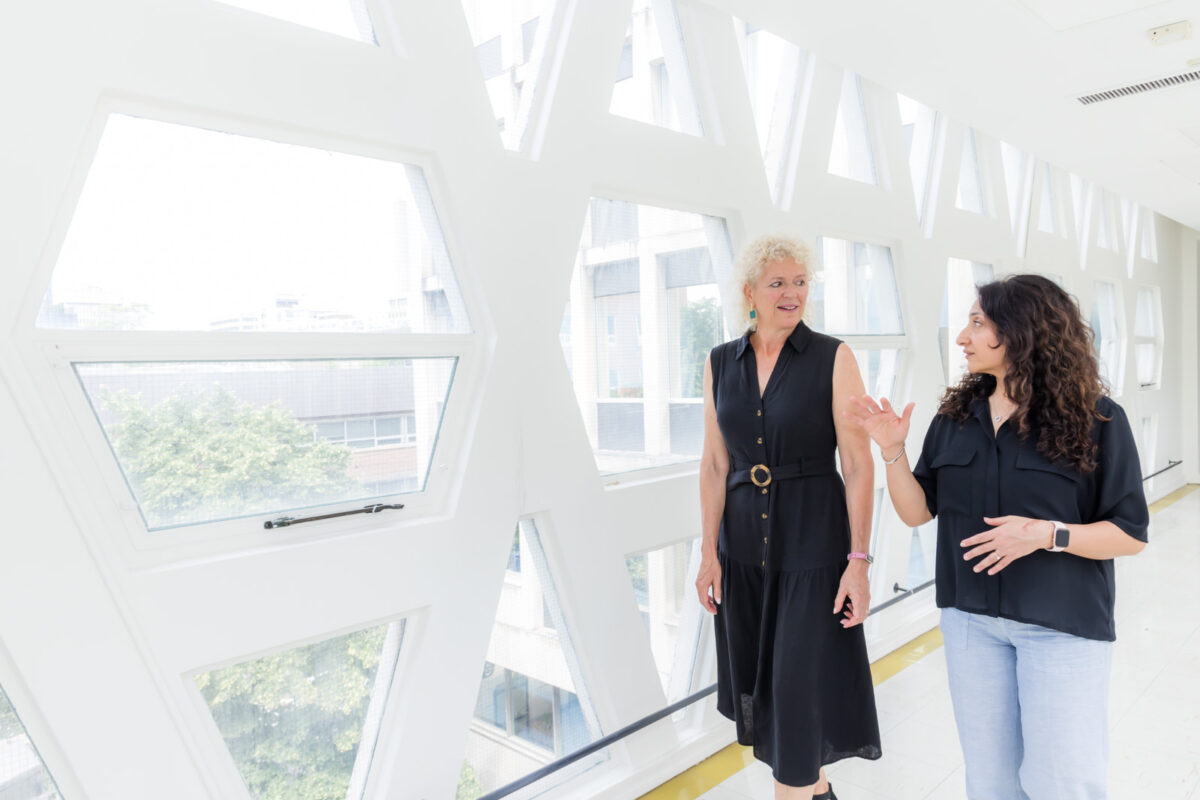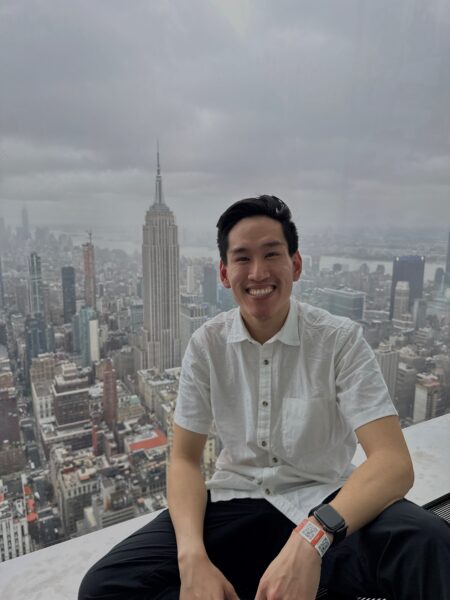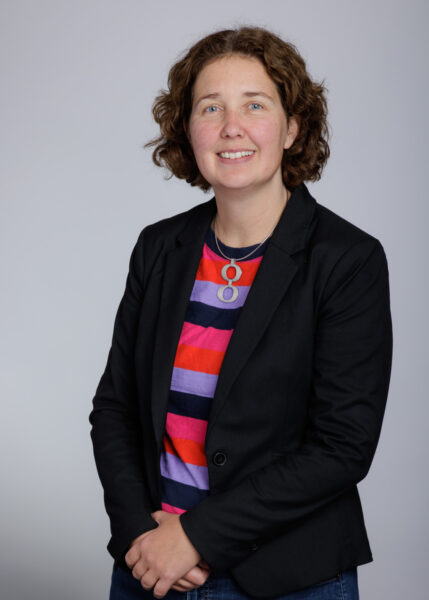Since its launch in 2021, the Rosenstadt Research Development Program (RRDP) has provided countless research opportunities for students and faculty members alike at the Lawrence Bloomberg Faculty of Nursing. These research experiences have planted the seed of research interest particularly among the Faculty’s undergraduate BScN students, helping them realize the importance of nursing perspectives in not only research but patient outcomes.
For Kathy McGilton, a professor (status) and senior scientist at KITE-Toronto Rehabilitation Institute, UHN, the RRDP has allowed her to mentor students by integrating them into her lab. It has also given her a chance to advocate for the area of research she is most passionate about, long-term care (LTC).
“We don’t see a lot of RN’s practicing in long-term care which is unfortunate because it is an environment in which they could lead. By involving nursing students in my work, I’m actively trying to have them embrace the possibility of working with older adults in the future and let them see the impact they can have,” says McGilton.
As part of the 2023 RRDP, McGilton connected with BScN student Nicholas Tseng (BScN 24) and PhD graduate Shirin Vellani (now an adjunct faculty member), for a novel project examining the experiences of LGBTQ+ older adults who are admitted to long-term care.
The researchers identified gaps in supportive care in LTC and worked to establish an advisory committee that involved LTC residents as well as their care partners who identify as LGBTQIA+ who either have dementia or fear getting dementia.

“We were very lucky to have Nicholas as our RRDP student, he was passionate about the topic and it was inspirational to engage with him on this work,” says McGilton.
For his part Tseng was involved in working on analyzing data for the literature review particularly the integration of palliative care approaches for LGBTQIA+ individuals. He is still actively involved in the research and currently looking at the implementation of living labs with McGilton, which he describes as going into LTC settings and coming up with quality improvement initiatives in direct partnerships with frontline workers and clinicians.

“I feel like as a future nurse it was really important for me to see the ways in which care can be improved,” says Tseng.
One of the highlights of his time in the RRDP was meeting with primary investigators in Europe who are currently involved in integrating “living labs” into LTC. Being able to network with researchers from around the world and present alongside McGilton and Vellani, was a unique opportunity that Tseng says he will not soon forget.
“Having a research perspective has definitely made me a better clinician, and I know that I will have research be a part of my career,” says Tseng.
*
Professor Martine Puts believes that research is a team sport. It is why she has consistently involved undergraduate BScN students in her research through the Rosenstadt Research Development Program.
“Nursing is a very practical program, there is no research project in the BScN program and the Rosenstadt Research Development Program helps us give students the chance to be engaged in research topics they might never have considered, while fostering their future interest in nursing science,” says Puts.

Vivian Li (BScN ’24) has been involved in Puts’ current research project funded by the Princess Margaret Hospital Foundation, which has focused on inequity and aging in cancer treatment. The team is specifically looking to understand barriers to enrolling racialized older adults in clinical cancer trials, and how they might address these barriers with future interventions.

According to Puts there is currently evidence of such barriers in the US but limited data available for Canada. Li who has been involved in the literature review and as a first author on their published protocol identified examples of barriers for racialized older adults from her analysis, which included a lack of knowledge about clinical trials, financial limitations, transportation issues and mistrust, which is particularly prevalent in the US based on historical misconduct in health settings.
Puts adds that there is some data on racism in health care in Canada in the area of cancer screening, but little information exists on racism and outcomes pertaining to clinical cancer studies.
“Canada is a country of immigrants so it is likely the situation is the same here, but if we don’t measure data related to inequities with regards to age, race and gender, we cannot address it,” says Li. “In the US it is well-documented that racism in healthcare impacts quality of life and life expectancy, and that older Black Americans often receive a cancer diagnosis late, which can further delay their treatment.”
Li says that she has always wanted to be involved in oncology research since her first undergraduate degree. For her, the RRDP has provided an additional level of support to help her build her research capacity, including information sessions and training on best practices in research, writing literature reviews.
“I think the more involved in research I am, the more I see how fundamental it is and how it guides our clinical practices and processes. It is necessary groundwork that has the ability to shape and improve the care we provide as nurses,” says Li.
This research project is now in the phase of recruiting participants for its stakeholder survey, which is available in 15 languages. Puts notes that she and her team are actively working with community organizations to disseminate the survey and have included both patients and policymakers in cancer care.
For Li the RRDP has also helped her realize the potential for graduate education in nursing.
“I am now very interested in continuing to be a part of research and pursing a graduate degree, including a PhD, it is something I had not considered before, and I’m very glad to have had this opportunity,” says Li.
